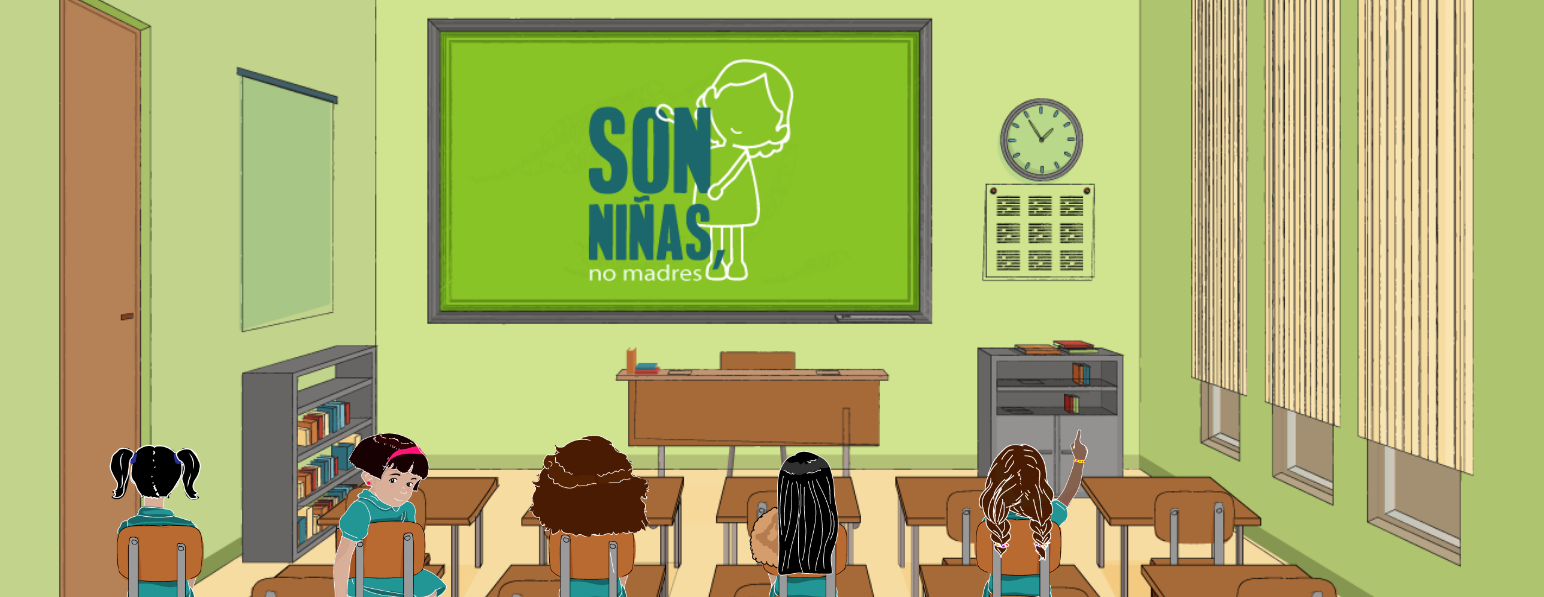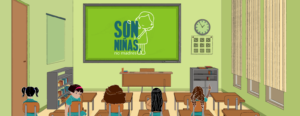


Humanists have told Nicaraguan government representatives at the UN Human Rights Council that the country’s total ban on abortion “is nothing less than institutionalized violence against women and girls.”
Speaking during a UN human rights review of Nicaragua, Humanists International’s Director of Advocacy, Elizabeth O’Casey, highlighted the appalling situation that many women and girls have to endure due to the high level of violence against them and the severe limitations of their reproductive rights in Nicaragua.
Despite Nicaragua having one of the highest teenage pregnancy and maternal mortality rates in the Americas region, abortion remains banned in all circumstances. The prohibition includes cases where the life of the woman is at risk or when pregnancy is the result of rape or incest.

ninasnomadres.org campaigns using the slogan Son #NiñasNoMadres: Girls Not Mothers.
This issue is compounded by the fact that many of those in need of an abortion are young girls having suffered sexual violence and rape. The country has one of the highest are of violence against women and girls in the region.
O’Casey mentioned the cases of two women who had been raped as children and then denied an abortion and who were now taking their cases to the UN Human Rights Committee.
She observed, “The total ban on abortion in Nicaragua, is nothing less than institutionalized violence against women and girls and a form of inhuman treatment and torture”. Humanists International urged the government to reconsider its rejection of recommendations by Slovenia and Germany in the review process that the country should decriminalize abortion.
The UN Human Rights Council’s Universal Periodic Review (UPR) is a state-driven process based on the principle of peer review. Every member state of the UN is reviewed on their human rights situations by the other members and those member states can recommend changes that are needed to uphold human rights in each country. Non-government organizations such as Humanists International also have an opportunity to comment on the review process. Each country is assessed this way every five years. So far there has been a 100% participation rate, making it the only universal mechanism of its kind.
The statement by Humanists International follows in full below:
42nd Session of the UN Human Rights Council (9th – 27th September 2019)
Universal Periodic Review: Nicaragua
Elizabeth O’CaseyWe were pleased to hear from the delegation that the rights of women and fighting violence against women are priorities for the Government (A/HRC/27/16, §106). However we were left confused: since, not only did the Nicaraguan National Assembly approve in 2017 an amendment to the Comprehensive Law on Violence against Women which reduced the scope of the definition of femicide to the private sphere, thus limiting the crime to relations between spouses and partners; but during this review Nicaragua has rejected recommendations on the need to take immediate measures to address the high rates of femicide and sexual and domestic violence against women and children by promptly investigating and prosecuting such crimes, and repealing that legislative amendment (A/HRC/42/16/Add.1, §125.240).
Despite Nicaragua having one of the highest teenage pregnancy and maternal mortality rates in the Americas region, abortion remains banned in all circumstances. The prohibition includes cases where the life of the woman is at risk or when pregnancy is the result of rape or incest.
This issue is compounded by the fact that many of those in need of an abortion are young girls having suffered sexual violence and rape.
Earlier this year, the UN Human Rights Committee heard the cases of two girls, known as “Lucia” and “Susana”, who had become pregnant from rape at age 13 and were denied a termination of pregnancy. Lucia’s pregnancy happened after more than a year of abuse by her priest. For Susana, years of abuse by her grandfather led to an unwanted pregnancy.
No girl, let alone a rape survivor, should be forced into carrying a pregnancy to term against her choice.
They are girls, not mothers, Madame Vice-President. “Son #NiñasNoMadres.”
The total ban on abortion in Nicaragua, is nothing less than institutionalized violence against women and girls and a form of inhuman treatment and torture. Accordingly, we urge Nicaragua to urgently reconsider its rejection of those recommendations calling for decriminalisation of abortion in the country and back-up its declared commitment to reducing violence against women with immediate changes in law and action.